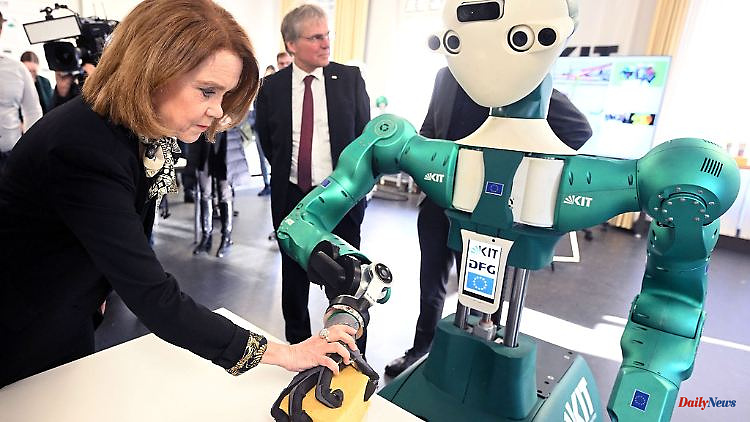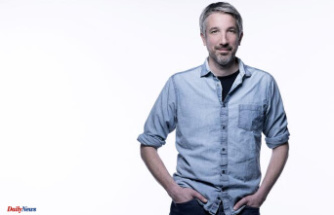Robots that learn by watching. Assistance systems that enable the visually impaired to study. Research at the Karlsruhe Institute of Technology should become more flexible and barrier-free.
Karlsruhe (dpa/lsw) - Thanks to regulations that are unique in Germany, students and scientists can research more flexibly in large research and university areas in Karlsruhe.
"Here you are researching the important basics that we need - but at the same time you are researching in practice," said Federal Research Minister Bettina Stark-Watzinger (FDP) at the Karlsruhe Institute of Technology (KIT). Together with Baden-Württemberg's Science Minister Petra Olschowski (Greens), she symbolically heralded a new era of teaching and research.
A law has been in force at KIT since the beginning of the year that enables a connection between university and large-scale research areas. This gives students, for example, access to large laboratories and enables them to better exchange information with the scientists working there. Bureaucratic hurdles have been removed so that scientists can switch back and forth between research and teaching.
During her first visit to KIT, Olschowski had previously advertised a service center there. It is intended to advise universities and colleges on the subject of barrier-free teaching materials. The need is great, said Olschowski. Rainer Stiefelhagen, Professor of Assistance Systems for Visually Impaired Students at the Center for Digital Accessibility and Assistive Systems, added that there are now a large number of inquiries from universities throughout the south-west. The establishment of the center is in the coalition agreement. A concept for this was submitted to the ministry in 2019.
Olschowski also informed himself about robot systems and the possibilities of artificial intelligence: A robot was demonstrated that, for example, can help with repairs, learn movements from humans and carry out certain commands on demand. Also on show was a semi-autonomous hand orthosis, a kind of splint with an artificial hand that uses a camera in the palm of the hand to recognize objects and grip them precisely.
The University of Excellence, with around 9,800 employees and more than 22,000 students, is the first institution in Germany to dissolve the boundaries between university and non-university institutions. The so-called 2nd KIT Further Development Act required for this was passed by the state parliament two years ago.












